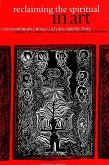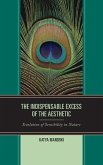This book investigates the reciprocal and often transgressive relations between rhetorical figures and libidinal activity. The works of Nietzsche, Artaud, Bataille, Klossowski, and Sade are reconsidered in light of the modernist and postmodernist problematics of simulacra, fascination, sublimation and desublimation, perversion, deconstruction, and libidinal economies. Reading across the boundaries of philosophy, art history, comparative literature, film studies, and psychoanalytic theory, this work reveals the manner in which theoretical discourse is imbued with passional motivations, and, conversely, shows how the passions are structured according to logical and rhetorical figures. In offering specific rereadings of several key figures of our modernist tradition, this work helps identify the sources of the 'postmodern condition.' It thus provides a theoretical foundation for contemporary art and literary criticism--especially of those works to be found at the margins of our culture.
Hinweis: Dieser Artikel kann nur an eine deutsche Lieferadresse ausgeliefert werden.
Hinweis: Dieser Artikel kann nur an eine deutsche Lieferadresse ausgeliefert werden.








